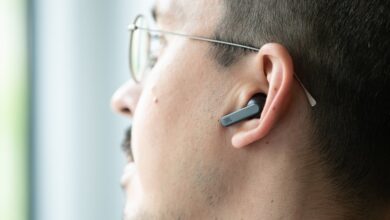Zoom meetings made people unhappy with their appearance

The coronavirus pandemic has changed our world dramatically. Perhaps the Zoom platform has benefited greatly from this change. This is where all businesses have started to shift to the digital image with reliance on remote work to avoid any potential confusion.
For some reason Zoom has been the main destination for teams to communicate while working remotely. This is in light of the dependence of some users on other platforms such as Skype, Microsoft Teams, Google Meet, and others.
Once life began to return to its normal course and clinics began to receive more patients, dermatologist and plastic surgeon, Shadi Korush, noticed a strange occurrence. It is the increase in the number of people who visit the clinic because of problems related to their appearance.
Read also: Zoom unveils new security features
The main reason behind this was that people felt that their looks and looks were pretty bad. Karush, on the other hand, who is a teaching assistant at Harvard Medical School, knew that the same event had been repeated with her fellow plastic surgeons.
The number of requests for facial plastic surgery has increased concurrently. When a random sample of patients was asked about the reasons, they reported that calls and video meetings via Zoom and others had made them believe their faces had become less beautiful.
Read also: Zoom Adds Live Transcription Services
Negative effect of Zoom meetings
Video calls made its users more attentive to their cosmetic flaws. They started paying attention to things like sagging skin around the neck or jawline, as well as how big their noses are.
Of course, the forms of people have not changed due to the home ban or remote work. Rather, the video calling platforms have only helped them to notice all these shortcomings. This is because video meetings make the user able to see their face exactly as the other party sees it… unlike normal communication.
Read also: Zoom announces focus mode that prevents students from being distracted
Therefore, as soon as they had the opportunity, dozens began to seek plastic surgery, and this case was described Basim “Zoom dysmorphia”. Relative to body dysmorphic disorder.
Despite the recovery that the world is currently witnessing and the spread of vaccinations in most countries of the world, it is clear that this disorder will continue with humans for a longer period. A survey conducted by Karush and her team at Harvard of more than 7,000 people found that the effects of Zoom dysmorphia persist.
Read also: How Zoom Helps Create Hybrid Business Concept
Karush mentioned that it’s not new, as a similar term has been coined “Snapchat dysmorphia” which relates to people being unhappy with their appearance because of Snapchat. Which led them to resort to plastic surgery as well.
There is no fault of Zoom in this situation in any way. But there is no doubt that the poor quality of laptop cameras have contributed to this.



